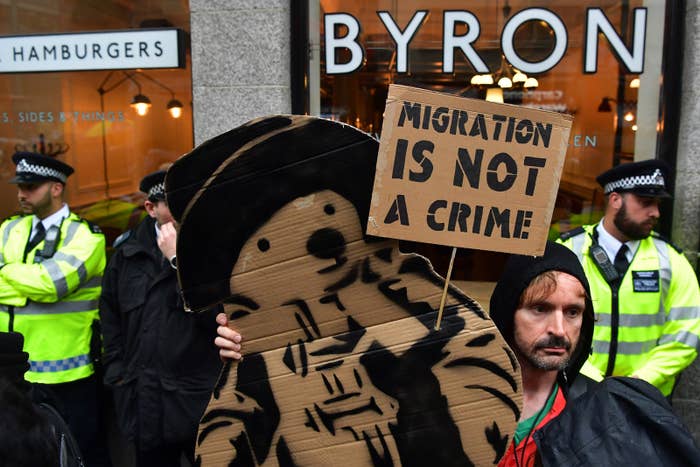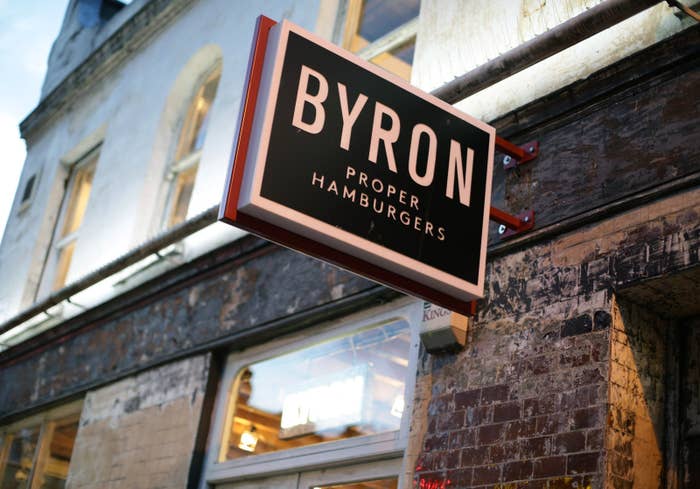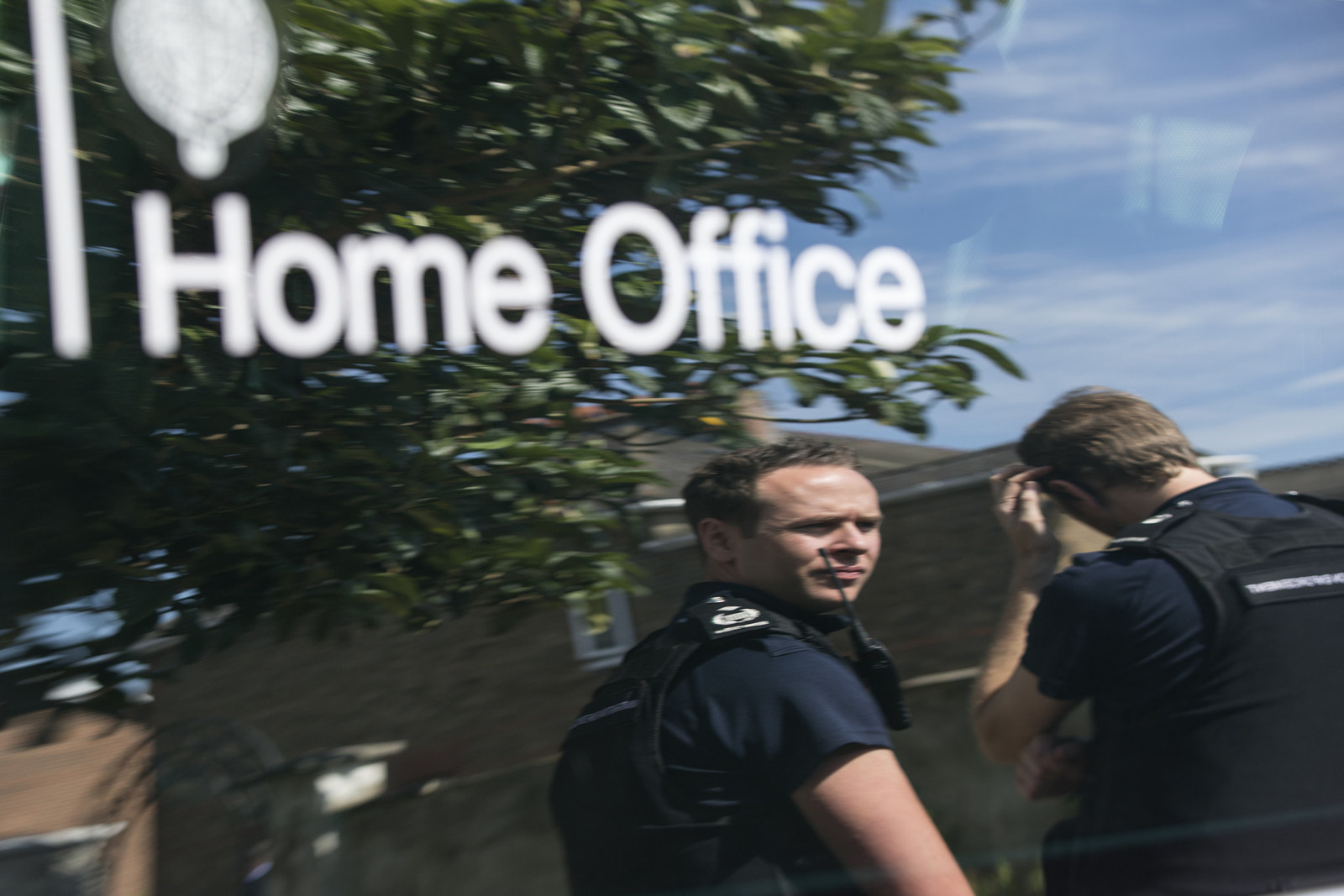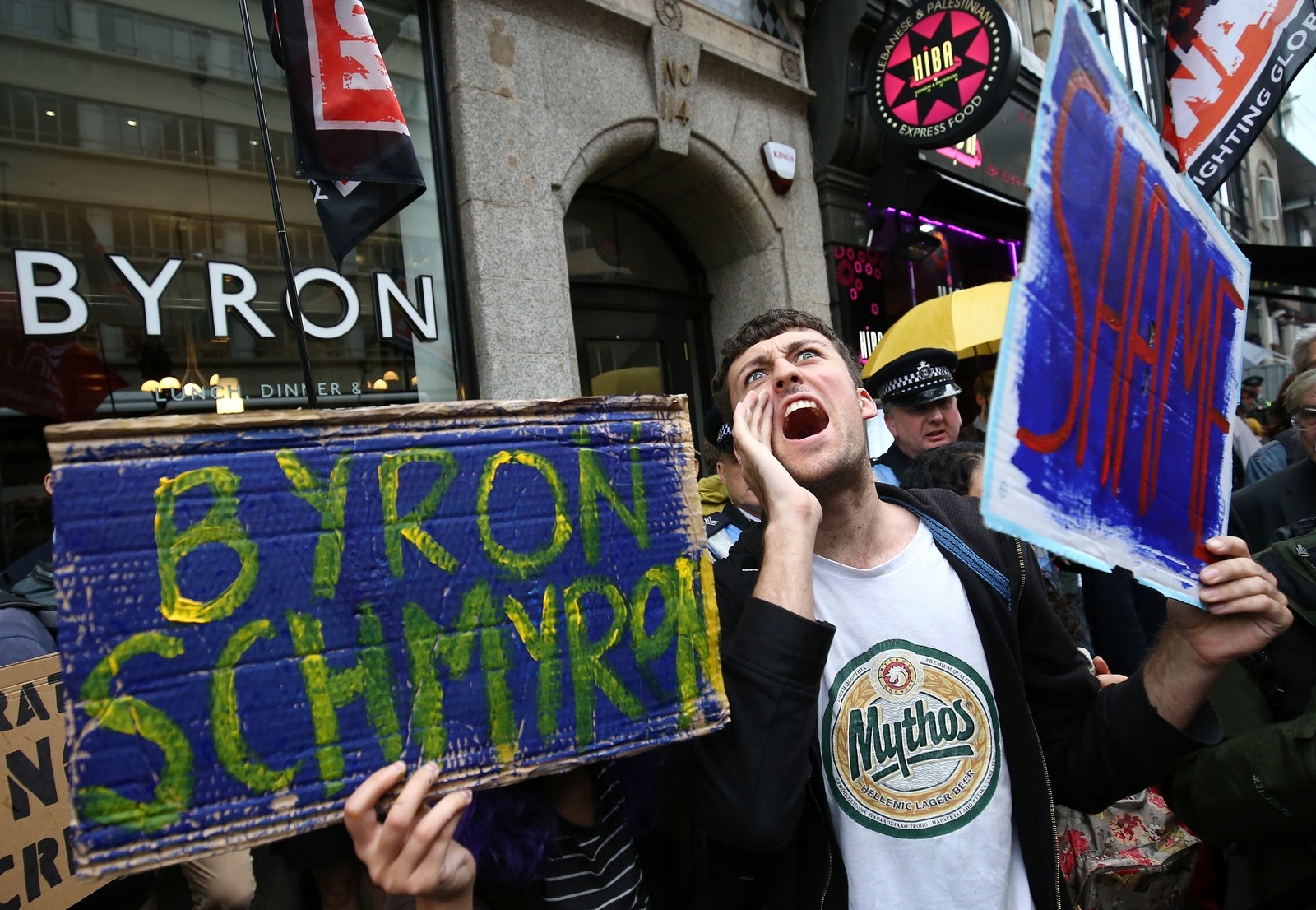
Byron Burger is avoiding tax by funnelling its profits into offshore subsidiaries, an analysis of the company's accounts by BuzzFeed News has revealed.
The burger chain's parent company has borrowed £82.7 million from Luxembourg and Isle of Man subsidiaries controlled by Byron's owners, at an interest rate of 10%, according to Companies House filings.
It means profits from the UK operation are then used to pay back the loan, reducing Byron's tax bill. As a result it paid no corporation tax last year.
The revelations come as the business faces ever-increasing scrutiny over its apparent decision to work with the Home Office, leading to the removal of dozens of staff who were working in the UK illegally.

Using a complex web of shell companies, Byron's UK parent company, Hellespont Holdings Limited, was loaned the £82.7 million from the offshore tax havens, via the Channel Islands.
Last year alone, the owner of Hellespont – a Mayfair-based investment firm called Hutton Collins – essentially charged Byron via Hellespont £13.5 million in interest, paid to the offshore companies. The offshore companies are all controlled by Hutton Collins executives.
The interest payments made by the UK-based businesses to the offshore businesses can then be written off against UK profits, lowering the potential tax bill to HM Revenue & Customs.
Byron even admits in its own accounts that the profits offset the costs of the loans. It says:
Profits generated in Byron Hamburger Limited [are] offset by interest costs on shareholder loan notes and external debt.
This is despite Byron's parent company in the UK claiming in the latest accounts filed with Companies House that it has no plans for an overseas operation and no plans for restaurants in Luxembourg.
The most recent accounts, for the year to 28 June 2015, say:
The directors will continue their journey to turn the UK into a nation of “proper hamburger” lovers and to open further restaurants across the UK. The directors intend to continue the roll-out of restaurants for the foreseeable future, to grow national brand awareness of Byron, as well as continuing to focus on organic growth.
Byron owes banks £30.7 million in debts, but owes subsidiaries £96.9 million, once the interest rate payments are taken into account.
The interest rate for the loans from its subsidiaries is a huge 10% and grows each year, as the interest owed is rolled into part of the loan and creates ever-expanding debts.
It is impossible to work out just how much tax Byron could be avoiding, but the tactic of UK companies taking inter-company loans and writing off the interest against tax is a popular one.
A decade ago, Vodafone was famously exposed for loaning itself billions of pounds via its own offshore subsidiary, with the interest payments to itself being wiped out against tax.

Nick Hood, business risk adviser at Opus Restructuring and founder of consultancy Company Watch, said: “This is yet another classic private equity ownership structure, which maximises shareholder gains and by diverting heavy interest liabilities offshore, creates doubts about its willingness to pay UK tax despite earning substantial profits here.
"No doubt it is all perfectly legal, but this does nothing to enhance the reputation of the business world.”
The accounts also show that in 2013 another loan of £25 million was made from HC Investissements VI – controlled by Hutton Collins – to Byron with an interest rate of 2.5% above the interbank lending rate (LIBOR).

This was repaid within a year, but earned the offshore firm a quick £300,000. Hutton Collins, which bought Byron in 2013, also pocketed £1 million in loan arrangement fees.
In total, last year the company had sales of £68 million, with pre-interest profits of £3 million, but paid no corporation tax.
Hutton Collins does declare a profit in the UK and pays tax at a rate of 7.4% on it. Byron denies any wrongdoing and there is no suggestion that they have broken the law.
A spokesman said the terms of the loans were typical in the industry.
He added: “The 10% rate is due to the loan being unsecured, which means more risk for the lender and therefore a higher interest rate. Companies of similar size to Byron incur similar rates for such loans."
“All companies in the Hellespont Holdings group, including Byron Hamburgers, are based in the UK and as such are subject to standard UK taxes. The Hutton Collins fund is based in Luxembourg due to it having a wide variety of international investors.”
The revelations came as protesters targeted the chain after Byron was accused of helping the Home Office to deport some employees who were working in its London restaurants.
An anonymous Byron employee told Spanish newspaper El Ibérico that staff members were asked to attend what they were told was a training session on 4 July. Five minutes into the session, the employee said, some members of staff were asked to go into a separate room where immigration officials were waiting.
On Monday night protesters surrounded the company's Holborn branch in central London, forcing the restaurant to close for the evening.
Byron said it was unaware that any of its workers were in possession of counterfeit documents until it was brought to bosses' attention by the Home Office.
"We have cooperated fully and acted upon the Home Office’s requests and processes throughout the course of their investigations: it is our legal obligation to do so," Byron said. "We have also worked hard to ensure minimal impact on our customers while this operation was underway."
